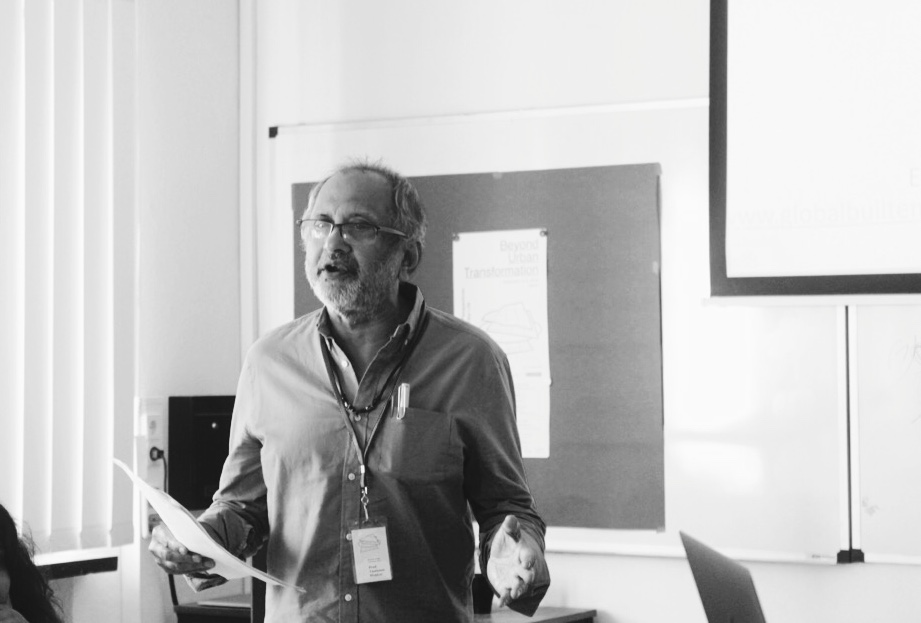In the past 30 years we have witnessed a proliferation of exhaustive literature on trendy subjects such as ‘Globalisation’, ‘Sustainability’ and ‘Urban Changes’. Varied branches of Humanities and Social Sciences have engaged in the stock taking of ‘Urban transitions’, and the rhetoric of multi-disciplinary study and research approaches on urban phenomenon are over-emphasized and coined in teaching, research and practice. In reality, it is hard to pin down effective and successful examples. More importantly, knowledge transfers in the name of ‘globalization’ (both in terms of reporting and research methods) continues to be from ‘West’ to ‘East’ with little evidence of reverse cultural experiences and lessons, which would be more applicable in the contemporary global spaces and multicultural urban transformations. Based on more than quarter of a century of urban research and teaching in diverse global built environments, this introductory workshop presentation attempts to put forward a few examples of contradictions. I attempt to illustrate how emerging cultures and spaces are continuously negotiated and contested with their adjacent (at times, heritage historic) sites. I intend to highlight the socio-political and cultural transformation process over a period of time, mismatches between urban transformation and inappropriate research/policy approaches, and challenge conventional theories and concepts that continue to persist despite its non-currency with the impacted actors. Charting my early works with the 1970s ‘self-help school of thoughts’ for the extreme poor urban communities in the then ‘Third World’ (which was enthusiastically promoted by the World Bank from Djakarta to Lima), to the recent areas of multicultural regeneration (like Bijlmermeer, Amsterdam), I would like to explore changing dynamics. As a way forward to tackle the emerging complex urban rapid transformation, I would like to refer to multidisciplinary work (including creative writing) at a few international old/new refugee camps in south Asia settings and introduce my current action-oriented research on urban protest movements and refugee crises. Together with participants, I want to think creatively beyond disciplinary conventional wisdom and depart from a single subject specific approach.
Roy, A. (2009): The 21st-Century Metropolis: New Geographies of Theory. Regional Studies
43(6), pp. 819-830.
Shakur, T (2014): Contested spaces, disaffected communities versus imaginative built environments: Re-conceptualizing urban planning, design and architecture?’ in: Erdogan N ‘Urban Transformation: Economic, social and physical aspects’ published by Kocaeli University, Turkey.
Shakur, T. (2017). Collective Memories, Vernacular Architecture and Transforming Historic Urban Identities of Turkey and Beyond. Global Built Environment Review (2017), pp. 1-8.
Prof. Tasleem Shakur
Senior Lecturer in Human Geography, Edge Hill University, Lancashire UK Edge Hill University, Lancashire UK
Tasleem Shakur taught and researched on Architecture, Urban social anthropology and south Asian cultures at Oxford Brookes, University of Sheffield and at Soas, University of London. He is the founder Editor of Global Built Environment Review and South Asian Cultural Studies journals.
https://www.edgehill.ac.uk/geography/staff/tasleem-shakur/
